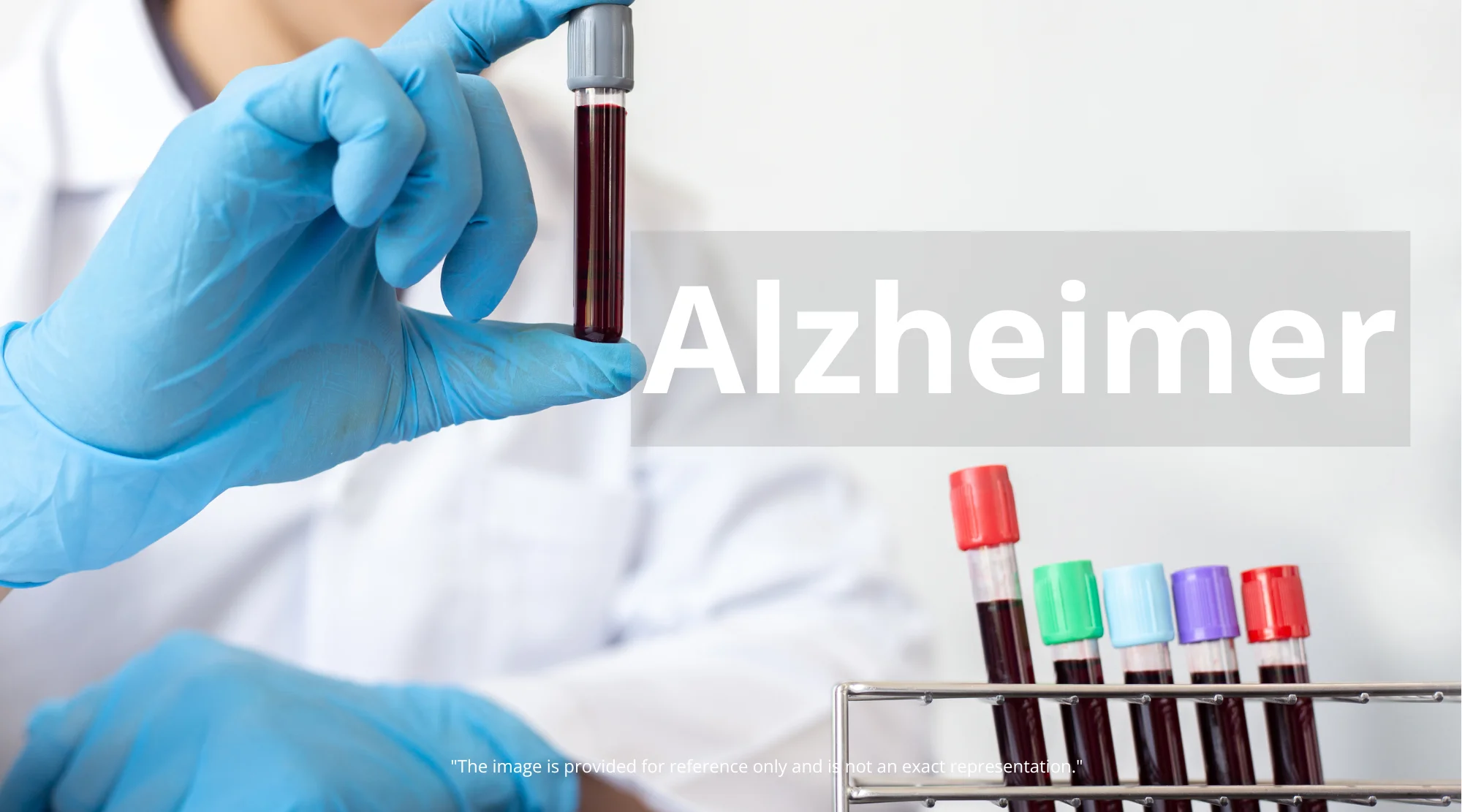Revolutionizing Diagnosis: The Dawn of Alzheimer’s Blood Tests
The landscape of Alzheimer’s disease diagnosis is on the cusp of a dramatic transformation. A groundbreaking new blood test is poised to revolutionize Alzheimer’s diagnosis, offering a more accessible and potentially earlier detection method than current practices. This innovative approach promises to improve the accuracy of diagnosis, allowing for timely interventions and offering new hope for individuals and families affected by this devastating condition. This article will delve into the details of this revolutionary blood test, exploring its potential benefits, the science behind it, and what it means for the future of Alzheimer’s care.

The Current Challenges in Alzheimer’s Diagnosis
Diagnosing Alzheimer’s disease has long been a complex and often delayed process. Traditional methods typically involve cognitive tests, brain scans (like PET scans), and lumbar punctures to analyze cerebrospinal fluid. However, these methods have significant drawbacks:
- Accessibility: Brain scans and lumbar punctures are expensive, invasive, and not readily available to everyone.
- Accuracy: Cognitive tests can sometimes misdiagnose the disease, especially in its early stages, and can be influenced by factors like education and cultural background.
- Timing: Early detection is crucial for effective intervention and management. The current diagnostic process often delays the identification of the disease, missing the window for potentially beneficial treatments.
These limitations contribute to the late diagnosis of Alzheimer’s disease, hindering access to support, treatment, and the ability to plan for the future. It’s essential to recognize the significant emotional toll this process takes on patients and their families, making accurate and timely diagnosis a paramount concern.
Unveiling the Blood Test: A Biomarker Revolution
The new blood test represents a significant leap forward in Alzheimer’s diagnosis. It works by detecting specific biomarkers in the blood that indicate the presence of amyloid and tau proteins – the hallmarks of Alzheimer’s disease. These proteins accumulate in the brain over time, causing damage and leading to the characteristic symptoms of the disease.
The blood test specifically measures a biomarker called p-tau217, which reflects the presence of both amyloid and tau proteins. This biomarker is a crucial indicator, offering insights into the progression of the disease within the brain. The test’s ability to detect p-tau217 with high accuracy promises to streamline the diagnostic process, making it quicker and less invasive. This innovation could significantly improve the accuracy of early diagnosis, potentially increasing the chances of effective treatment and improving the quality of life for patients.
Improving Accuracy and Accessibility
One of the most significant advantages of the blood test is its potential to improve the accuracy of diagnosis significantly. Studies have shown that the blood test can achieve an accuracy rate of over 90%, surpassing the 70% accuracy rate of current methods. This heightened accuracy means fewer misdiagnoses and more reliable results for patients.
Moreover, the blood test offers a more accessible diagnostic option. Blood tests are relatively inexpensive, easily administered, and widely available compared to specialized brain scans and lumbar punctures. This accessibility can democratize diagnosis, allowing more people to access timely and accurate assessments, especially in underserved communities.
The ADAPT Trial: A Pathway to Standardized Diagnosis
The Alzheimer’s Disease Diagnosis and Plasma p-tau217 (ADAPT) trial is a crucial step toward integrating the blood test into routine Alzheimer’s diagnosis. The trial involves recruiting participants at various memory clinics across the UK. This clinical trial aims to evaluate the effectiveness of the blood test in real-world settings and determine its impact on patient care.
During the ADAPT trial, researchers will assess whether providing blood test results earlier can speed up diagnosis and influence decisions about further investigations. They will also measure how the test results affect both patients and doctors, including their ability to interpret and respond to the findings. If the trial proves successful, the blood test could become a standard part of Alzheimer’s diagnosis, offering a significant boost to early detection and effective management of the disease.
Early Detection and Potential Benefits
The ability to detect Alzheimer’s disease early holds significant promise. Early diagnosis allows for several potential benefits:
- Early Intervention: Some treatments may be more effective in the early stages of the disease.
- Lifestyle Adjustments: Individuals and families can implement lifestyle changes, such as diet and exercise, to manage symptoms and slow the progression of the disease. You can find some helpful information about healthy eating by reading the article “Healthy Eating: Your Ultimate Weekly Meal Plan for a Balanced Life.”
- Care Planning: Early diagnosis allows time to plan for future care, including financial, legal, and emotional support.
- Clinical Trial Enrollment: Early diagnosis increases the opportunity to participate in clinical trials.
Early detection empowers individuals with Alzheimer’s and their families, allowing them to make informed decisions, access appropriate resources, and improve their overall quality of life.
The Broader Impact: A Glimpse into the Future
The development of a reliable blood test for Alzheimer’s disease represents a turning point in the fight against this debilitating illness. It has the potential to transform the way we diagnose, treat, and manage Alzheimer’s disease. The availability of a simple blood test could lead to a significant increase in the number of people diagnosed with Alzheimer’s.
With more accurate and accessible diagnostic tools, healthcare providers can better understand the prevalence of the disease, track its progression, and evaluate the effectiveness of new treatments. This data can then inform the development of new therapies and interventions. This is an excellent example of an advancement in the field of medicine and health care. If you are interested in other topics, you may find the article “Alice Walton’s Medical School: Revolutionizing Healthcare with a Holistic Approach” to be helpful.
Challenges and Considerations
While the blood test offers tremendous potential, some challenges and considerations remain. The test is still under development, and researchers are working to refine its accuracy and ensure its widespread availability.
Other considerations include:
- Cost: While the blood test is expected to be less expensive than brain scans, cost factors need to be addressed.
- Accessibility: Making the test available to everyone, regardless of location or socioeconomic status, is crucial.
- Emotional Impact: It is important to offer patients adequate support and counseling to deal with the emotional impact of a diagnosis. If you are interested in exploring mental health support options, you can read our article on “AI Therapy: 5 Expert Tips to Protect Your Mental Health While Using Chatbots.”
Addressing these challenges will be essential to maximize the benefits of the blood test and ensure that it serves the needs of patients and their families.
Summary: A Brighter Outlook
The advent of a reliable blood test for Alzheimer’s disease brings a significant beacon of hope to individuals and families affected by this condition. By improving accuracy, accessibility, and allowing for earlier detection, this technology is poised to revolutionize the diagnostic process and potentially transform the management and treatment of Alzheimer’s disease. As research progresses and the test becomes more widely available, a brighter future for those impacted by Alzheimer’s disease is on the horizon. For those focused on maintaining overall wellness, you can read about the benefits of strength training by reading “Fitness After 40: The Ultimate Guide to Cardio and Strength Tr














1 comment